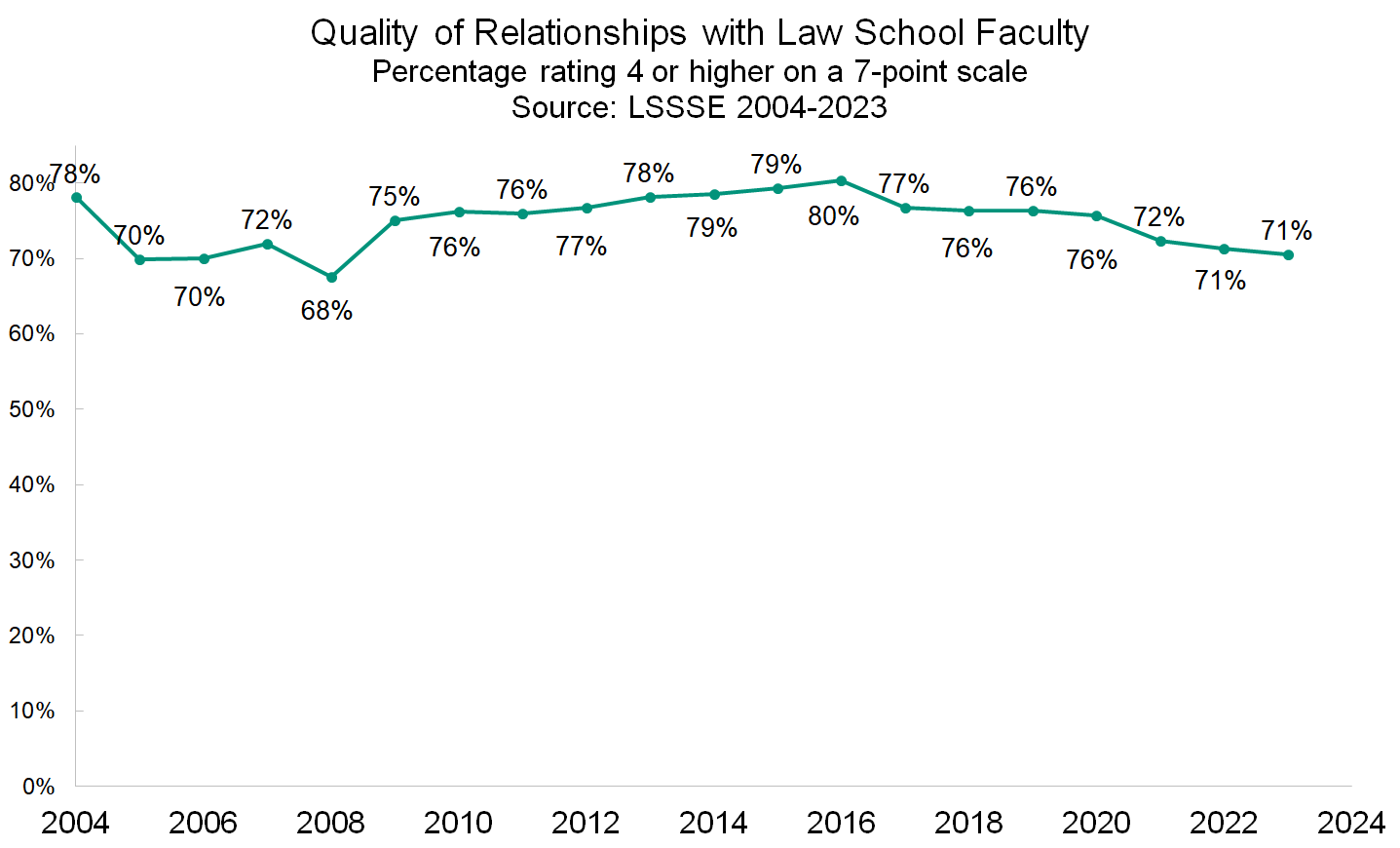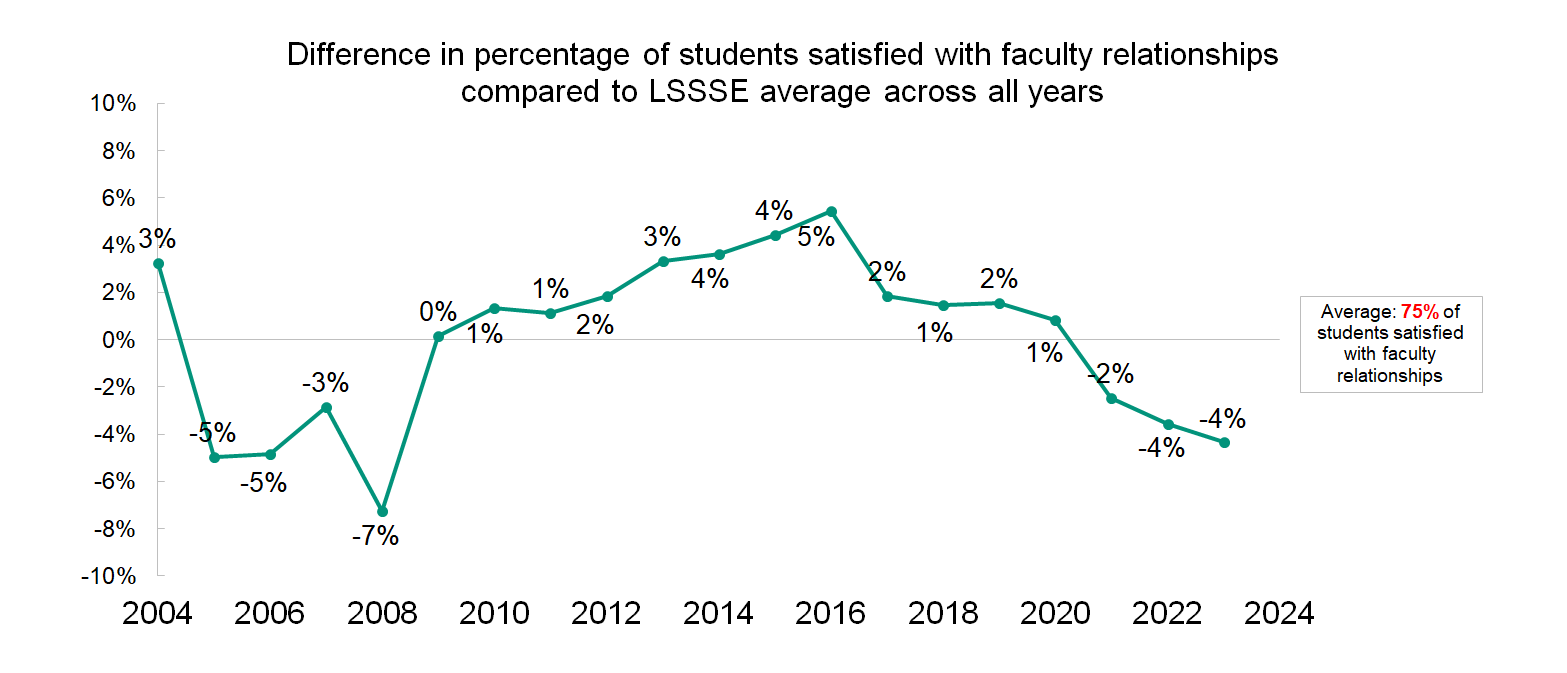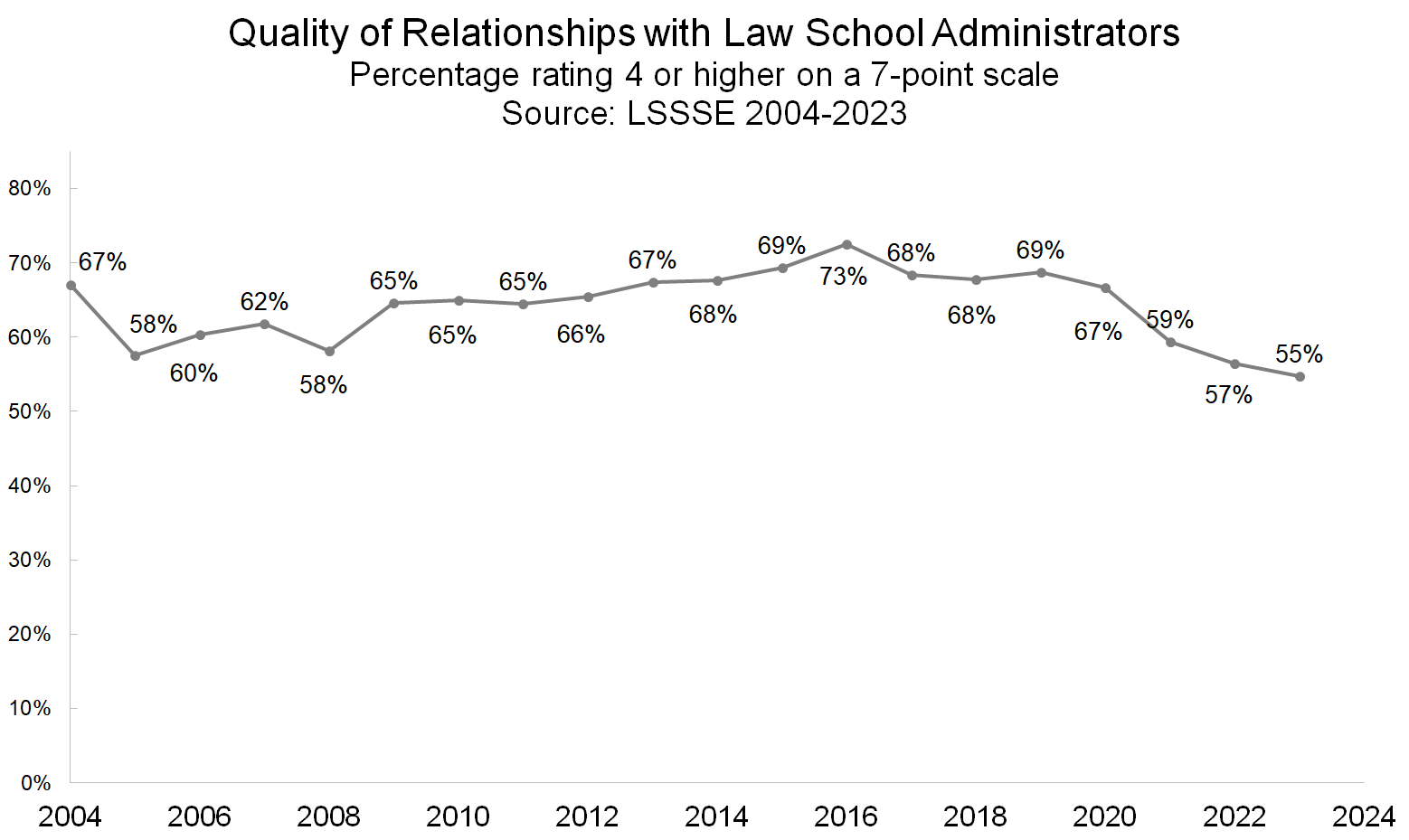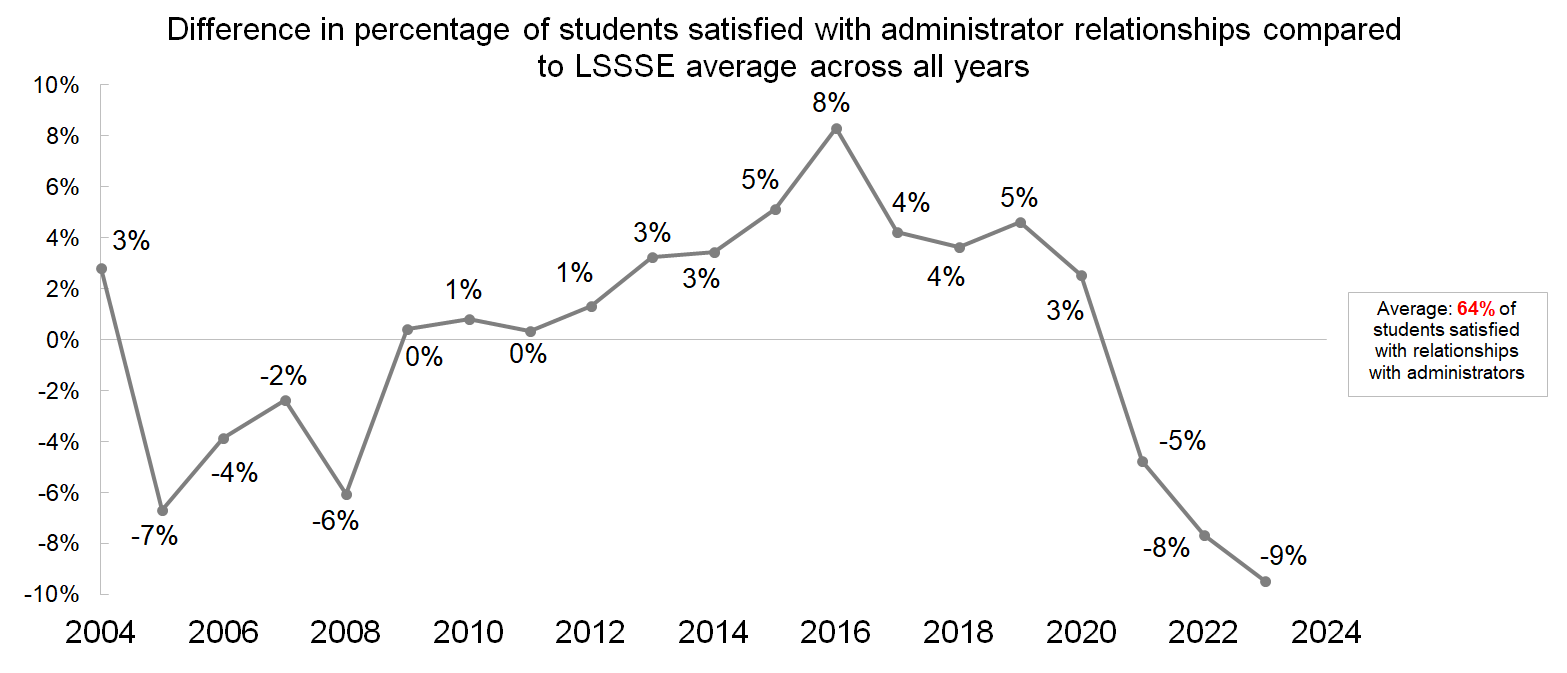In our last post, we examined how peer relationships between law students have changed over the last twenty years. Now we will consider the relationships between law students and their faculty and administrators over the same period.
Generally, law students have better relationships with faculty than administrators. In 2023, 71% of law students were satisfied with their relationships with faculty (rated 5 or higher on a 7-point scale) compared to only 55% of students who were satisfied with their relationships with law school administrators.
Much like satisfaction with peer relationships, satisfaction with faculty relationships has fluctuated over the last twenty years and may be a bit on the decline in recent years. Satisfaction with relationships with faculty hit an all-time high in 2016 at 80% but has been below the average of 75% since 2021.

This next graph gives us the ability to look specifically at the difference between satisfaction with faculty relationships and the all-time average (75%) for all years since the inaugural LSSSE survey in 2004.

Students’ outlook on their relationships with administrators is even bleaker. The 2023 satisfaction rate of 55% is a full nine percentage points lower than the all-time average of 64%, and eighteen percentage points lower than the peak value of 73% in 2016. Although all law student relationships have been on a downward trajectory over the last few years, the relationships between students and administrators have been most strongly impacted and thus requires some special thought and attention by law schools. Perhaps the disruptions brought by COVID-19 have isolated students most severely from their administrators or perhaps the genesis of this discontent lies elsewhere.

Satisfaction with relationships with administrators has been on a precipitous decline since 2016.

It makes sense that students have stronger relationships with faculty since students see faculty on a regular basis and are likely to come to rely on faculty for academic guidance, feedback, and mentoring. Students and faculty are united in a common goal to study and understand the law, which can foster positive regard. Administrators, conversely, may be regarded as more impersonal given that their impact on the students’ learning experience is more remote. Administrators may also be responsible for implementing rules and policies with which the students may not always agree. Hence, law students may understandably experience higher levels of rapport and satisfaction with their faculty than their administrators. However, given that law students’ relationships with administrators is currently at an all-time low, it may be worth some reflection to see how law school administrators came become more engaged to make a positive impact on the lives of their students.
